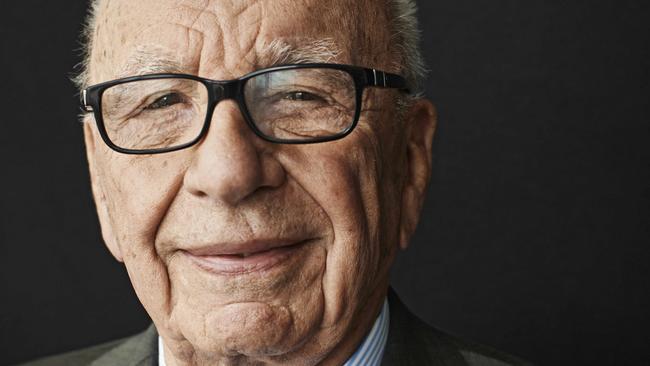
Murdoch’s departure as executive chairman of Fox and News Corp is the decisive transition for the most successful businessman in Australian history and one of the most influential, enduring and path-breaking media leaders in the democratic world.
Murdoch, aged 92, is stepping aside for his son, Lachlan, 52, who becomes sole chair of News Corp and continues as executive chair and CEO of Fox Corporation.
The transition has been long expected, but in a personal message Rupert Murdoch said he would move to the role of chairman emeritus at Fox and News.
The transition is not just an important moment for Fox and News Corporation but probably signals the end to the 20th century phenomenon of the media magnate.
Murdoch was a figure of global media leadership with his drive, audacity and deal-making skill that spanned seven decades.
He has left a lasting imprint on the media industries of the main countries in which his corporations have operated, notably Australia, Britain and the US.
There was never any silver bullet to explain Murdoch’s success.
It was a function of a creative mind, a tenacious spirit and a massive work ethic. He was a natural journalist, a reality all his editors quickly discovered, a business entrepreneur and a media magnate with a near unrivalled skill at paying high for new assets and, by turning them into profitable and powerful concerns, showing he got a bargain.
He was an insider with an outsiders’ mind. Much of his ability lay in identifying the flaws in the established order, in existing markets, recognising where fresh opportunities lay and having the courage to back his judgment.
Murdoch’s career is conspicuous for its longevity and its range across much of the English-speaking world.
Inheriting a small media business in Adelaide as a young man in his early 20s, Murdoch built a global empire off his drive and entrepreneurial vision.
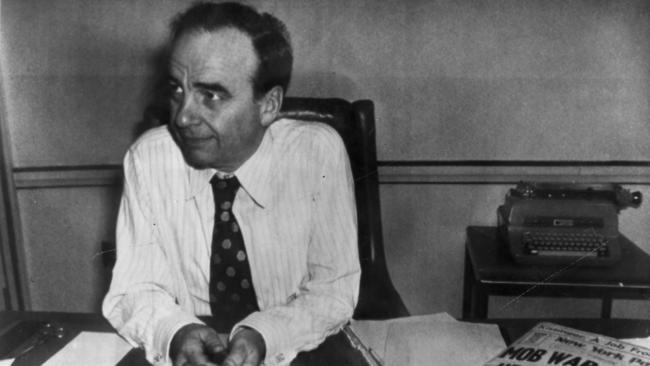
The paradox of his career and the key to much of his success was Murdoch’s self-image as an anti-establishment disrupter that saw him bust into markets, create new products and rewrite the rules.
Murdoch was always highly political. That was integral to his nature, his outlook on the world and the influence he mobilised and brought to bear.
It meant attitudes towards Murdoch were often shaped by the political preferences of his media outlets, exciting supporters and infuriating critics.
Murdoch’s publications projected political and cultural values and sought to shape the direction of their societies.
He believed in the battle of ideas; his intellectual transition over seven decades is a mini history of the post-war world. He was never frightened to take a stand.
This sense of mission was apparent in Murdoch’s statement on his transition saying: “In my new role, I can guarantee you that I will be involved every day in the contest of ideas. Elites have open contempt for those who are not members of their rarefied class. Most of the media is in cahoots with those elites, peddling political narratives rather than pursuing the truth.”
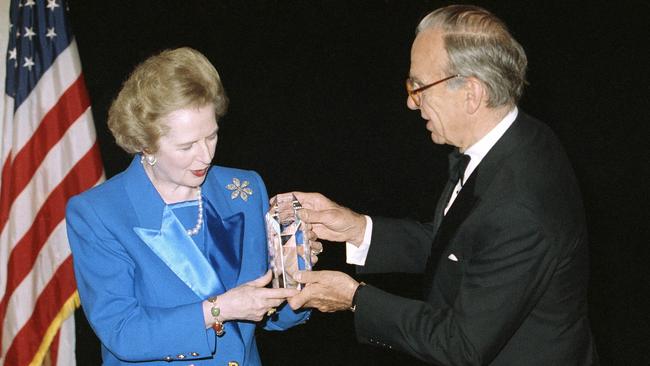
In the mid-1980s Murdoch was instrumental, with the support of prime minister Margaret Thatcher, in breaking the power of the print unions with the transfer of his operations from Fleet Street to Wapping.
He backed Tony Blair in Britain and John Howard in Australia.
Murdoch succeeded in different media markets in different countries. He had firm views but was always learning; he was restless, not complacent.
His career spanned the second half of the 20th century and the first fifth of the 21st century. It encompassed both the industrial age and the digital age, the domain of news and the domain of entertainment. He oversaw two technological revolutions in newspapers in his time and the transformation in television as a medium.
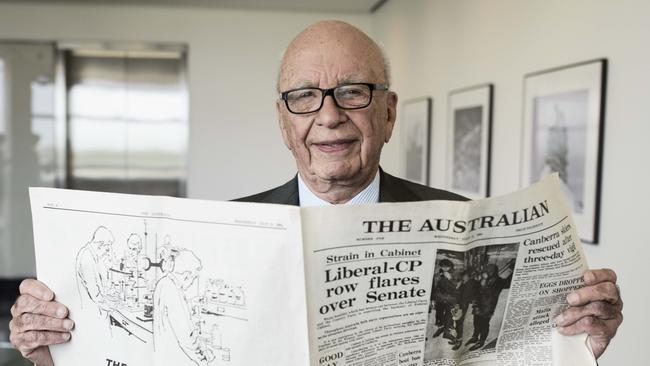
He understood media and communications from the ground up. Few executive chairman have ever possessed such a grip and understanding on the operations of such a large company. As his experienced deepened his skill at hiring talented executives was conspicuous.
In his personal message Murdoch highlighted the exceptional family bond and continuity in the transition. He referenced his own father, Sir Keith Murdoch, once chair of the Herald and Weekly Times, who “firmly believed in freedom” and paid a tribute to his son and successor, Lachlan whom he described as a “passionate, principled leader”.
Murdoch may be chairman emeritus but, in typically, Rupert fashion, he is not disappearing. “Our companies are in robust health, as am I,” he said. “We have every reason to be optimistic about the coming years.”
Murdoch said he was “truly proud” of what had been achieved through the decades. He said he will keep watching the company broadcasts, read its newspapers, websites and books and be “reaching out to you with thoughts ideas and advice.”
Lachlan will be sole chair but Rupert will be influential.
The scope of Murdoch’s media expansion was vast, building out from Australia to Britain to the US, publishing tabloids and up-market broadsheets, entering the satellite television market with Sky Television in the UK, acquiring The Times and The Sunday Times, buying into US newspaper and television assets, going to Hollywood via ownership of Twentieth Century Fox, building Fox News Channel – leader of the 24-hour news service for over 20 years – with its associated cable networks, buying Dow Jones and acquiring The Wall Street Journal.
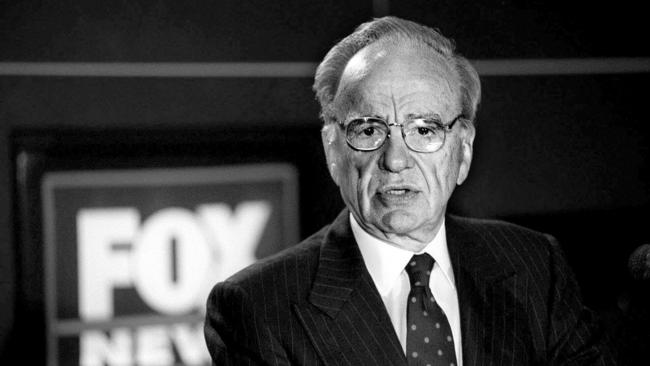
The most foolish blunder a Murdoch newspaper editor could make was to assume greater knowledge of the industry than Rupert. I sat in meetings where he would run through the main British papers, one by one, explaining the editorial and commercial strategy of each. Murdoch was never satisfied with the status quo. He was always looking for the next big idea. Even as he got older, at an age when most people would be retired, he was a change agent. If something wasn’t working, he was dangerous; he would want it fixed and fast.
His departure as executive chairman will be marked at The Australian. The paper was founded by Murdoch, its first edition appearing on July 15, 1964, with the paper’s 60th anniversary coming next year.
When I interviewed Murdoch for the 50th anniversary he said of the paper: “I think it is one of my main lifetime achievements. I hope I have more yet.”
The young Rupert was an Australian nationalist and a citizen of the world.
Eventually he became a citizen of the US, his ambition taking him onto the biggest stage. He never rested on his laurels. He forever demanded high performance and was tough in budget meetings. Yet Rupert was down to earth, never pompous, he would listen.
The newspaper industry pumped through his bloodlines and was always in his mind’s eye. Murdoch said: “If you establish a great name, like The Times in London or The Australian or The Wall Street Journal, people love it in all its forms.”
The 1964 timing for the launch of The Australian was prophetic. The nation was on the cusp of a cultural transformation and the six states were ready to see themselves through a national lens. Murdoch created the paper with a firm ambition: to enhance Australia “as a great independent nation standing on its own feet”. Frankly, he wanted to shake the place up after the Menzian age. Murdoch’s role as a change agent is the source of much contention about him. His compulsion was to pick holes in the status quo.
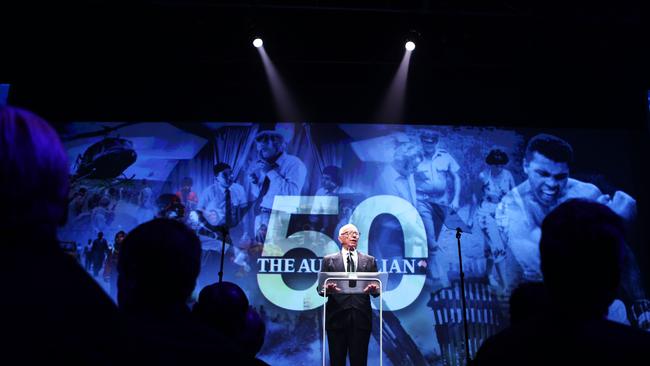
The tyranny of distance said a national paper in Australia couldn’t succeed, but Murdoch thrived in disproving orthodoxy. The Australian, ultimately, is unique because it aspires to represent the whole nation, not one segment of the nation. Rupert was always the arch-enemy of the Little Australia brigade, he wanted a Big Australia, looking outwards, not inward, standing up for what it believed, having influence in the world.
When I asked him what he thought was The Australian’s enduring legacy, he said: “The underlying belief in Australian qualities and Australian abilities but also the belief in free markets and free people. We’re not tied to a party. We are not a party newspaper.”
As a media and business leader Murdoch had an instinct for popular opinion and a nose for political class propaganda. His tabloid papers became famous with The Economist describing Murdoch as “inventing the modern tabloid” while his up-market papers have been robust in challenging the intellectual orthodoxy of the progressive establishment.
Born in Melbourne in 1931, the son of Sir Keith, war correspondent and newspaper proprietor, Rupert inherited the Adelaide News from his father, expanded into Sydney and then into Britain. News Corporation was built with relentless drive by one man. At a time when much of Australia’s business leadership remains cautious and shy on entrepreneurship, Murdoch’s story is exceptional.
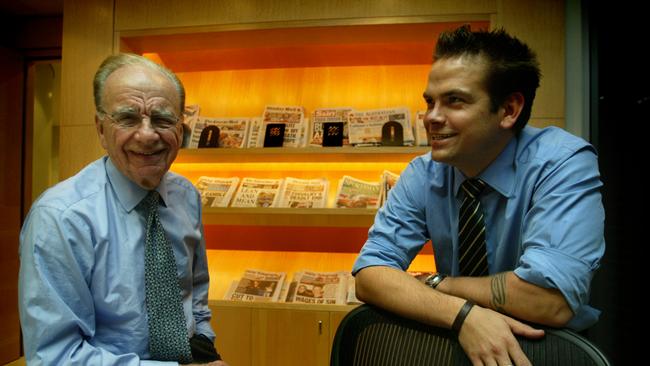
He steps aside at a time when the media is being transformed and challenged – the role of hi-tech, the impact of social media, the escalating demand for entertainment and the reconstruction of the newspaper business model – point to even more rapid changes. Murdoch rose to mastery in the 20th century world of big government, big business, big unions and big media.
The style and determination of Rupert Murdoch meant his path was marked by contention. There were mishaps and fallouts along the way. The 1990 debt crisis brought the company to the brink – it was a moment of profound shock for Murdoch. The company was caught in the phone hacking scandal in the UK. Following reports on the US election, Dominion Voting Systems sued Fox for defamation, saying it broadcast false claims about rigging the election for President Joe Biden and won a substantial payout in settlement.
For many, Murdoch is a polarising figure. As a media leader his corporate recuperative powers have been conspicuous. His legacy over seven decades is astonishing.
Murdoch was a dominant media proprietor in a particular phase of world history defined by economic progress, technological innovation and cultural transformation with mass media at the centre of the narrative.
Lachlan Murdoch thanked his father for his 70-year career, his legacy in the companies he founded and for his ongoing role as chairman emeritus.





Rupert Murdoch’s decision to step down is a turning point in the history of media, its modern evolution and its sources of power.